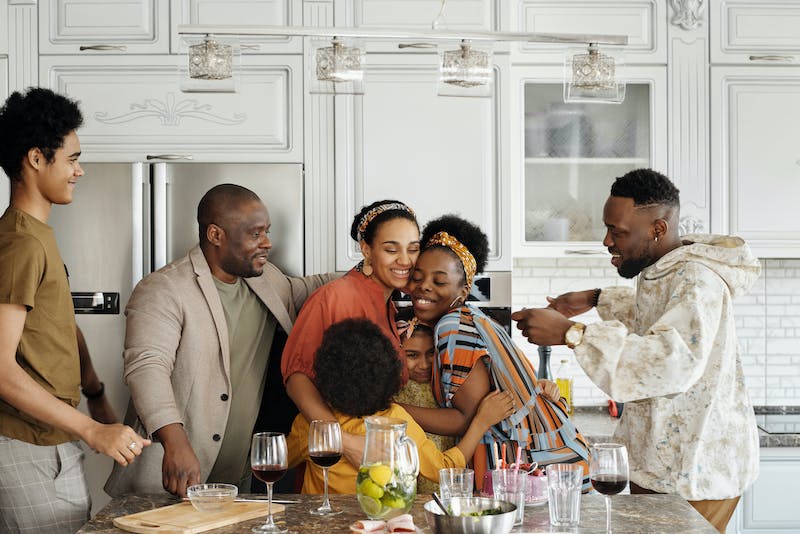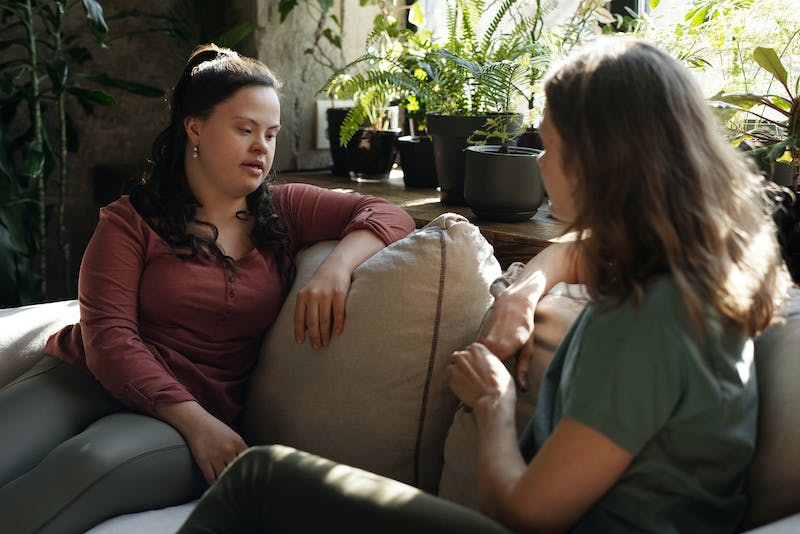Home for the Holidays: Now What?

Margaret Edwards is the Program Director for Counseling and Wellness Services at the Maxine Platzer Lynn Women's Center. She also collaborates with colleagues on various outreach efforts that promote the well-being of members of the UVA and Charlottesville communities. Her counseling work focuses on helping clients who have experienced interpersonal violence, sexual assault, stalking, grief, and trauma.
For most college students, the holidays are a time to recharge and reconnect with friends and family back home. It seems simple enough (or it did to me back when our kids were in college): Pick up your student, get home, and take up right where things were left when you dropped them off back in August. Same rules, same schedule, same routines, right?
Not so fast. Even for those of us who remember our own college experience, the changes in our college-aged children after just a few months away can come as a surprise. Likewise, for students returning home, the changes in parents who have adjusted to their absence can feel unsettling.
I hear from many students that the long winter break is most challenging because, after months independently navigating schedules, relationships, academics, and meals, being home feels like an unwelcome return to the era when they had far less day-to-day autonomy.
For parents, having a young adult home can likewise interrupt new family patterns. It can be easy to assume the college student should and will seamlessly fall back into the former family norms and routines. Try to resist the temptation to make that happen. Likewise, don’t go the opposite direction, assuming your student no longer needs you. Instead, consider how you might together evolve your family dynamics in a way that mutually respects your college student’s growth and your changing role as the parent of a young adult.

While changes can be uncomfortable, the winter holiday break offers a real opportunity for you to get to know anew the human you have raised up to adulthood. Though they will always be your kids and you will always be their elders, they are no longer children. While they have taken their first major steps into being independent adults, with all the responsibilities, worries, and need for respect that all adults share, they still need you to validate that.
On top of all this “normal” college adjustment, plus Covid, our students just had a jarring collective moment where they were closely reminded that life is fragile. The tragedy on November 13th shook the foundation of their sense of safety. It has sparked intense feelings of anger, sadness, and questions about what they know about safety in an uncertain world. The grief disrupted academics and routines for a time, and that time is not yet over. Even those students not intimately affected experienced some loss of what they hoped the semester would be. Your student may or may not need to talk about it. More than likely, they will need to set a boundary/take a break from how much they talk about it. Honor their wishes if they ask to talk about something else.
As your students settle in at home this winter holiday, I would invite you to consider these possible topics of conversation:
When you think of your semester, what stands out? Highs? Lows?
What was the most challenging intellectually? Why?
What was most exciting? Most confusing?
Examples of changes you have noticed in yourself? What changes do you notice in us?
What advice would you give to younger friends or siblings about college?
What are you grateful for?
What do you hope for when it comes to next semester?
Tell me about your class/professor/TA/sport/club experiences.
I know this semester has been really hard—I am here to listen if you want to talk about it.
What would you like support from me to look like in the coming semester?
Above all, listen to the answers with your whole attention. Reflect/repeat back what you heard them say before you add your own thoughts. You don’t have to agree. But if you listen, they will listen in return. You have wisdom to share about your own experience dealing with change, opportunities, and hard times. Asking for time to be together to talk, and listen, is the best possible gift you can give.

Finally, be aware of your expectations. Our image of what a holiday should be—harmony, togetherness, fun—may look different in grief and in the midst of other family concerns. Instead of you and your college student trying to force a Hallmark image, aim instead for curiosity about one another, compassion, and grace in a difficult time. Let your student use the time to rest and reconnect with friends and you. Nothing sweetens a visit home like the invitation to deepen emotional connection and understanding with the resilient people your students are becoming.
- Musings on National Violin Day
- Making the Promise Real: How a UN Tax Convention Can Fulfill the UNDHR’s Vision
- Having a Drink With Your Donkey: The Absurd in Antiquity
- UVA Club of Atlanta: Virtual Pilates Class
- UVA Club of Fairfield/Westchester: Cavs Care - Food Pantry Donation Drive
- UVA Club of Washington DC: December Book Club